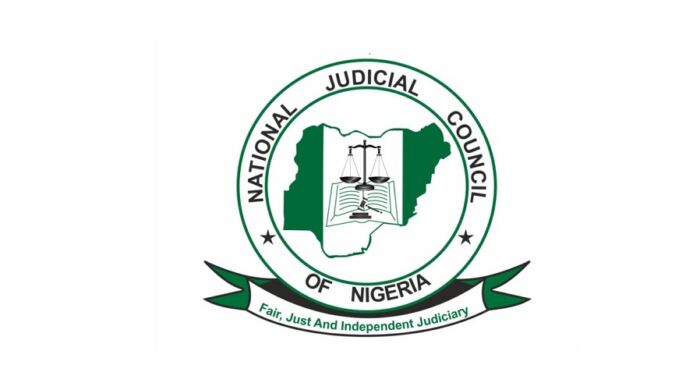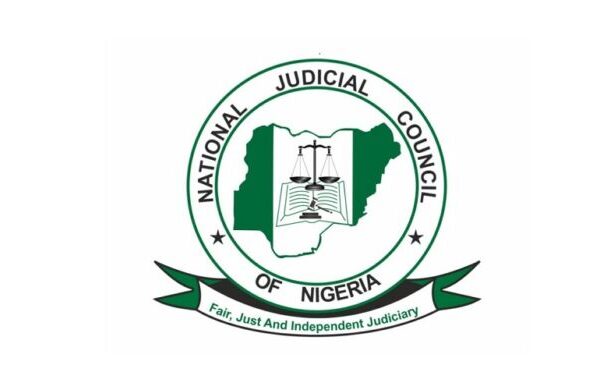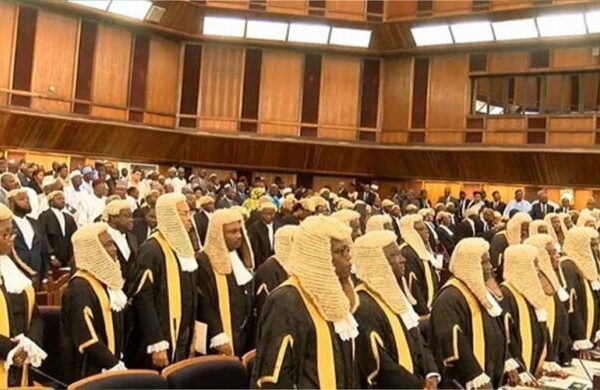- Government Organisation
- Abuja, Federal Capital Territory, Nigeria

National Judicial Council (Nigeria)
About Us
The National Judicial Council (NJC) is a key institution in Nigeria’s judicial system, established by Section 153 of the 1999 Constitution of the Federal Republic of Nigeria. Its creation was a response to the need for an independent and impartial judiciary, free from external influence, particularly from the executive arm of government. This independence is essential to upholding the rule of law and ensuring that justice is administered fairly and impartially in a democratic society.
The NJC replaced the former Advisory Judicial Committee (AJC) and was granted significant powers and functions to oversee the judiciary’s operations. It serves as a safeguard against political interference, playing a vital role in managing judicial appointments, promotions, and disciplinary actions. The Council is entrusted with the responsibility of recommending judicial officers for appointment, reviewing the conduct of judges, and ensuring that high ethical standards are maintained across the judiciary.
By establishing the NJC, the Nigerian government sought to fortify the judiciary’s autonomy and ensure that the judiciary operates in accordance with constitutional principles, independent of political influence. The NJC’s continued role is critical in maintaining the integrity and professionalism of the Nigerian judiciary, thus contributing to the overall health of Nigeria’s democratic governance.
Historical Background of the National Judicial Council (NJC)
The National Judicial Council (NJC) of Nigeria was established under the 1999 Constitution as a crucial body to safeguard the independence, accountability, and effectiveness of the Nigerian judiciary. The formation of the NJC was a direct response to the growing concerns over the need for an impartial and autonomous body to oversee judicial matters, free from interference by the executive and legislative branches of government. Its creation was a significant step in reinforcing the judiciary’s role as the third arm of government, which is essential to maintaining the rule of law and ensuring the separation of powers within Nigeria’s democratic framework.
Prior to the establishment of the NJC, Nigeria’s judiciary was often exposed to political influences, with no centralized body dedicated to managing judicial appointments, promotions, and discipline. This lack of oversight led to inefficiency, corruption, and a general absence of accountability. With the enactment of the 1999 Constitution, the NJC came into being with clear responsibilities to address these challenges, ensuring that the judiciary operated independently and was accountable to the people it served.
The NJC’s powers, as defined by the Constitution, include recommending judicial appointments and removals, overseeing judicial budgets, and maintaining high ethical standards within the judiciary. Over the years, the NJC has played a pivotal role in addressing issues of judicial misconduct, implementing reforms, and enhancing the integrity and independence of the judicial system.
Today, the NJC stands as a cornerstone institution within Nigeria’s democratic governance. Its ongoing work in ensuring judicial integrity, enhancing the professionalism of judicial officers, and promoting the fair administration of justice is vital for the continued development of the nation’s legal and political systems. As Nigeria’s highest regulatory body for judicial conduct, the NJC continues to play a key role in the nation’s pursuit of justice and fairness.
Mission Statement
To sustain and enhance the independence and accountability of the judiciary, promote the rule of law, and ensure an effective, efficient, and transparent administration of justice in Nigeria.
Vision Statement
To uphold a judiciary that is independent, impartial, and accessible, fostering public confidence in the administration of justice and contributing to the development of Nigeria’s democracy and governance.
Mandates of the Commission
- Recommending the appointment, promotion, and discipline of judicial officers in superior courts.
- Ensuring the independence of the judiciary and safeguarding its integrity.
- Overseeing the budgetary and financial management of the judiciary.
- Formulating and enforcing guidelines and policies for judicial conduct.
- Investigating allegations of misconduct or corruption against judicial officers.
- Promoting the efficient and effective administration of justice in Nigeria.
Conclusion
The National Judicial Council (NJC) plays a pivotal role in ensuring the independence, integrity, and efficiency of Nigeria’s judiciary. As a constitutional body, it was established to safeguard the judiciary from external influences, particularly from the executive branch, thereby protecting the core principles of democracy. With its vast powers in overseeing judicial appointments, promotions, and discipline, the NJC has contributed significantly to the development and reform of Nigeria’s judicial system.
By maintaining strict ethical standards and holding judicial officers accountable, the NJC helps strengthen public trust in the judiciary and upholds the rule of law in the country. Over the years, the Council has proven to be a cornerstone of Nigeria’s democratic governance, ensuring that justice is administered fairly and impartially, free from political interference. The NJC remains a crucial institution in maintaining the independence and credibility of the Nigerian judiciary, thus fostering the continued growth of the country’s legal system.
Business Amenities
- Car Parking
-
 Government Organisation
Government Organisation
Contact Information
Opening Hours
Contact Business
Contact Business
Additional Information
Additional info

Subscribe now to get direct updates
Join Naijadirectory Newsletter








